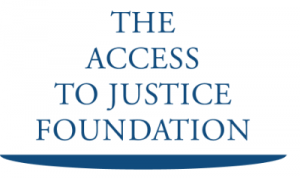Our Response to the Access to Justice Inquiry: Build Sustainable Funding for Free Legal Advice
We’ve just submitted our evidence to the Justice Committee’s Access to Justice Inquiry.
In our view, there is no greater challenge to effective access to justice than the lack of funding available to properly resource initiatives that provide it. The Inquiry is focused on a broad range of topics, but the ability to address issues around and improve services delivering advice and representation, early resolution, and digital innovation all rely on establishing additional, sustainable sources of protected funding to support them.
Here’s what we shared with the Committee.
The numbers behind the crisis
Every year, 66% of adults in England and Wales face legal problems. For over 11 million people, help never comes. Our funded partners tell us requests for help are up 40% in five years. Meanwhile, legal aid funding is down £728 million since 2012.
The people hit hardest are those who need help most, people in poverty, those with disabilities, and racial and ethnic minorities. They’re least able to pay for legal advice yet most likely to need it for life-altering issues around housing, benefits, immigration, and family matters.
Exploring available solutions
The funding challenge is real, but so are the solutions. The Mixed Funding Models for Free and Early Legal Advice research project we’re working on with Centre for Socio-Legal Studies, University of Oxford and the University of Surrey, funded by Nuffield Foundation, has identified models that are highly impactful, practically achievable, and don’t impact the public purse.
In particular we focused our evidence on the following additional funding opportunities:
1. Undistributed damages from opt-out collective actions in the Competition Appeal Tribunal
The Access to Justice Foundation is the prescribed charity to receive undistributed damages from opt-out collective actions in the Competition Appeal Tribunal. Recent Competition Appeal Tribunal settlement judgments in Merricks v Mastercard and Gutmann v SW Trains confirmed we’re the right people for this job. The Tribunal said “a charity supporting access to justice for disadvantaged individuals is an appropriate recipient of undistributed damages.”
The Department for Business and Trade is reviewing the collective action regime right now. There’s a real chance to standardise settlement rules and create reliable income streams.
2. Interest on Lawyer’s Client Accounts (ILCA) schemes
These schemes pool small amounts of interest from client funds that law firms hold briefly, creating ongoing funding for free legal advice services.
ILCA schemes work in every US state, raising over $175 million every year for civil legal services. Canada and Australia use similar models successfully. The format and structure of the schemes is flexible, meaning concerns about implementing a similar scheme in the UK could be addressed through smart design.
The research is also examining other models including:
- Legal expenses insurance applications
- Levies on large commercial law firms
- Apprenticeship levy utilisation
- Re-direction of dormant client monies
What we asked the Committee to do
We asked the Justice Committee to:
Support our position on undistributed damages from collective actions – protecting the Foundation’s role as the recipient of undistributed damages, and advocating, through engagement with the Department for Business and Trade, to make the Foundation a recipient for similar sums in settlement cases, and
Support the exploration of an ILCA scheme in the UK using evidence and expertise from international examples of best practice.
What additional funding can do
Additional sustainable funding will:
- Stop legal problems becoming crises by helping people earlier.
- Reach the people who need help most with services that work for their communities.
- Save public money – research shows every £1 spent on free specialist legal advice saves £2.71 for government.
- Build a stronger free legal advice sector more able to
- Add genuine value rather than just replacing proper government investment in legal aid
How you can help
If your organisation is thinking about submitting evidence to the Inquiry, please reference this research and back our asks on additional funding models, especially undistributed damages from collective actions.
The legal framework exists, international expertise is available, and people need help now. Working together, we can create sustainable funding for free legal advice to ensure we continue to improve access to justice for those most in need.
